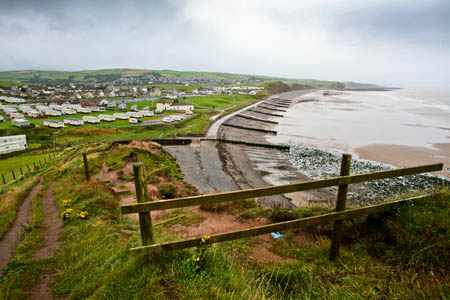
A swift implementation of the English coast path is one of the demands
Britain’s oldest national conservation group has produced an access manifesto in the run-up to the general election and is asking candidates to sign up the 10-point plan.
The Open Spaces Society wants to put access and footpath and green space protection at the heart of the issues being debated as the dissolution of Parliament approaches.
While ministers and their shadows argue about fiscal tightening and care of the elderly, the OSS general secretary Kate Ashbrook pointed out the benefits, both economically and to health, of the public use of paths and open spaces.
She said: “Paths and open spaces are vital to us all. They provide opportunities for quiet recreation close to home and further afield, they promote health and wellbeing and, by their use, may generate income for the local economy.
“So we have asked candidates to pledge their support for our ten-point action plan.”
- A right of appeal, and a requirement to provide suitable alternative land, before public open space is taken for another purpose
- A law change to give county and unitary authorities a duty to take action against unlawful works on common land
- Legislation throughout England and Wales to enable people to reclaim ‘lost’ commons for the common-land registers
- A timetable for processing town and village green applications, so that legitimate applications are swiftly resolved – and mischievous ones swiftly rejected
- Requirement to include on planning-application forms questions about the existence of public rights of way, common land and town or village green within or adjacent to a proposed development
- A change in the law to require an independent review to protect users’ rights when there is an opposed order to gate an alleyway, and to prohibit the use of permanent gating orders
- Repeal of the provision for seeking changes to footpaths and bridleways in the magistrates’ court, as this is intimidating and costly to members of the public
- Swift implementation of the new English coastal route and associated access land – the Marine and Coastal Access Act 2009
- Greater use of agricultural subsidies to secure new rights of public access, and ensure existing public paths are not obstructed
- All public paths in England and Wales recorded, open and easy to use, with a formal definitive list of all public highways, from roads to footpaths.
Parliament is expected to be dissolved soon after Easter, with a 6 May election the most likely bet.